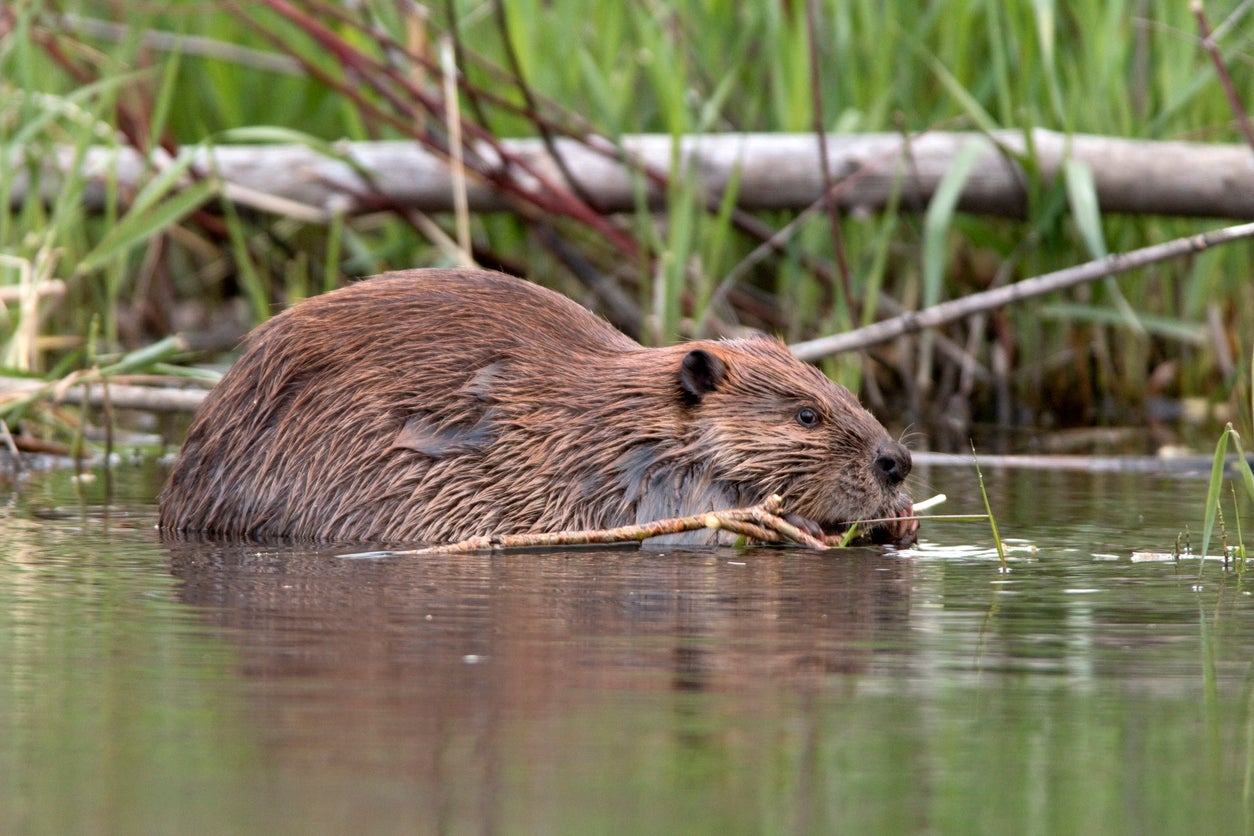Beavers to return to Nottinghamshire for first time in 400 years
Family of the animals, including four babies, or kits, are to be released into special enclosure

Beavers will return to Nottinghamshire for the first time in 400 years on Friday as part of a programme to enhance the county's natural environment.
A family of the animals, including four babies, or kits, are to be released into a specially constructed enclosure in the Wildlife Trust's Idle Valley Nature Reserve near Retford.
The Wildlife Trust has teamed up with Severn Trent in a bid to improve water quality across more than 290 hectares of habitat at the reserve, as well as the wider county through targeted support for farmers and landowners.
It is hoped the introduction of the beavers will help Nottinghamshire Wildlife Trust officials control scrub throughout the reserve, boosting habitat for a range of wetland birds and creating new pools to benefit everything from fish to dragonflies and otters.
Nottinghamshire Wildlife Trust's head of nature recovery Janice Bradley said: "We are so excited that after two years of planning with our partners including Severn Trent, Beaver Trust, Seven Sisters Zoo and Nottingham Trent University, we are ready to welcome the first beavers in our county for at least 400 years.
"The fact that we'll be welcoming such a large group adds to the sense of anticipation, but the real excitement relates to the beavers' capacity to transform landscapes and create rich wetland habitat that supports many other creatures."
The release comes just days after Wildlife Trust's President Emeritus Sir David Attenborough issued a call to arms for nature's role to be recognised in the fight against climate change.
In a short film made by The Wildlife Trusts for the Cop26 climate summit, Sir David said: "We know that we need to stop burning fossil fuels, but we must also recognise the role of nature in helping us turn the tide.
"We must bring wildlife and wild places back on an ambitious scale, in turn creating new livelihoods and protecting the planet for future generations."
Sir David also highlighted the role that beavers can play in enhancing habitats, adding: "For decades, The Wildlife Trusts have been leading the way to put nature into recovery; bringing back precious saltmarsh and peatlands; and reintroducing beavers, our natural water engineers."
The semiaquatic rodents are being reintroduced to counties across the UK after centuries of being largely extinct.
Beavers are considered as a "keystone species", meaning they play an important role in modifying the environment around them as well as supporting other animals and reducing the risk of floods.
Prior to the 16th century, beavers thrived across much of Europe and Asia but became extinct as they were heavily hunted for their fur and meat.
PA
Join our commenting forum
Join thought-provoking conversations, follow other Independent readers and see their replies
Comments
Bookmark popover
Removed from bookmarks